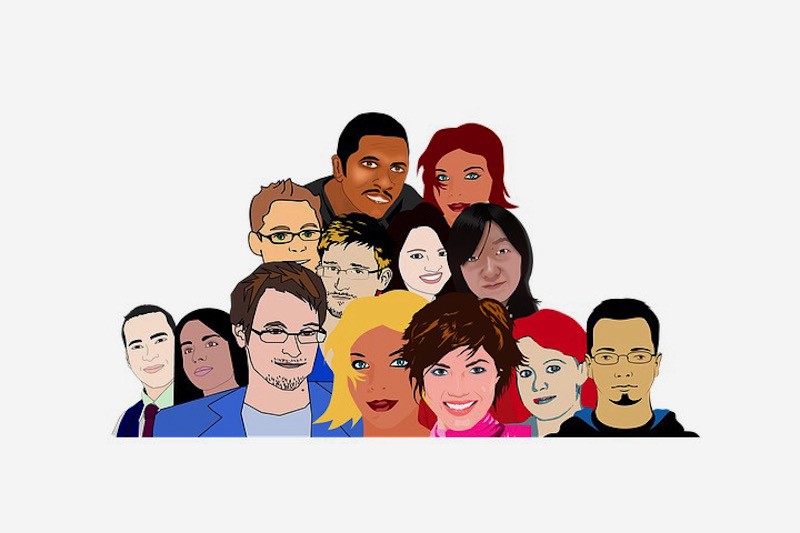We Are Human First: Ethnic and Race-Based Traumatic Stress
-
-
Gail Parker
We are all impacted by xenophobia and racism, whether we are the ones being wounded, or the ones intentionally or unwittingly doing the wounding. Ahead of a free PESI UK Clinical Spotlight webcast on 1st April, author, psychologist and yoga therapist educator Dr Gail Parker explores the implications for our psychological health and wellbeing of living in a culture of unhealed ethnic and racial trauma – and the importance of self-care practices for promoting post-traumatic growth.

Race-based traumatic stress is a worldwide phenomenon. It is an emotional injury that refers to the events of danger related to experiences of discrimination, threats of harm, humiliating and shaming events, in addition to witnessing harm to other individuals because of race related events. Even though researchers have made a clear connection between ethnic and racial discrimination and negative outcomes like depression, anger, low self-esteem, anxiety, shame, guilt and various physical reactions, it remains an underrepresented topic in trauma informed therapies.
People of colour and immigrants face multiple threats to physical and emotional safety throughout their lives. Because race-based stress and trauma are ongoing, cumulative and recurrent, frequent exposure intensifies symptoms of trauma, putting those directly impacted at greater risk for developing ongoing psychological distress. Due to a lack of opportunity to recover before the next experience, every personal or vicarious encounter with racial hostility, discrimination and violence contributes to a more insidious, chronic stress and intensifies symptoms of trauma.
I naively assumed that the global pandemic would blunt issues of race and ethnicity once people realised that the pandemic does not discriminate based on race, ethnicity, nationality or culture, and would help us realise that we are all, first and foremost, human beings. But as it turns out that was wishful thinking. News reports are steadily coming in that describe a worldwide rise in xenophobia, accompanied by hostile and aggressive attacks on people of East Asian and Southeast Asian ancestry and appearance. The news is filled with reports of health disparities that negatively impact people of colour and immigrants worldwide. And research shows that discriminatory practices on the part of healthcare providers are a significant part of the problem.
Regardless of race and ethnicity we are all impacted by the damaging effects of xenophobia and racism, from those who are directly wounded to those who intentionally or unwittingly do the wounding. We are embedded in a culture of unhealed ethnic and racial trauma. But here’s the good news. In the midst of the Covid-19 global pandemic we are also witnessing a global awakening to the pandemic of racial violence and its pernicious effects on all of us. No one is immune. As psychotherapists, psychologists and other mental health and wellbeing-related practitioners, now is a time to address issues of race and ethnicity starting with ourselves.
We have a responsibility to recognise racism and xenophobia and to examine our own internalised racial and ethnic biases. Xenophobia, the habit of marginalising or excluding those who do not share your characteristics, is a maladaptive response to stress. White fragility, the inability to engage in the discussion of race or ethnicity without becoming defensive, is a symptom of unhealed racial trauma. Our attitudes toward others are shaped by deeply embedded culturally accepted stereotypes. Before we can be helpful to those who are directly impacted by racism, it is imperative that we shine a light on our own racial and ethnic attitudes, otherwise we run the risk of re-wounding or re-traumatising others. If we are willing to recognise, admit to and examine our own culturally conditioned biases, we can challenge their validity. We can then rid ourselves of prejudices and shape our consciousness to embrace, and celebrate a world that is becoming more varied and expansive every moment.
Therapeutic interventions and self-care practices that support psychological health and wellbeing and that promote post-traumatic growth are necessary. Now is a time to reduce the harmful effects of ethnic and race-based traumatic stress so that regardless of skin colour, facial features, hair texture, and unique cultural, racial and ethnic identity, we embrace the fact that we are members of one race, the human race, and remember above all, first and foremost we are human.
Coming soon - PESI UK Clinical Spotlight webcast with Dr Gail Parker on 1st April 2021.
Transforming Ethnic and Race-Based Traumatic Stress Through Yoga, by Gail Parker, will be published in November 2021. This is a companion to Restorative Yoga for Ethnic and Race-Based Stress and Trauma, published by Singing Dragon. To receive 20% off the book please use the code PARKER20.